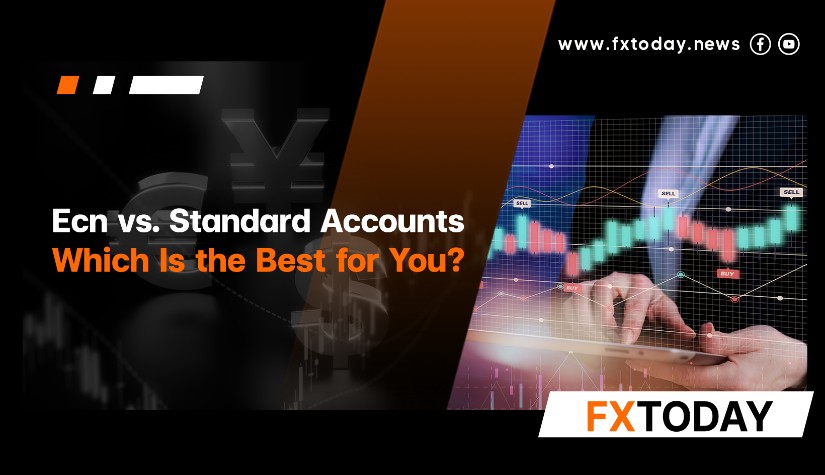Many traders have already decided on the type of account they prefer, but some are still considering the differences between ECN and Standard accounts. This article aims to compare these two popular account types by examining their respective advantages and disadvantages.
The ECN Account
ECN, standing for Electronic Communication Network, typically refers to the direct transmission of trade orders to the central market, bypassing intermediaries such as brokers. This allows for faster execution and greater flexibility compared to other account types.
Here's a summary of the advantages and disadvantages:
Advantages of the ECN Account
1. Low Spreads
ECN accounts generally offer very low spreads, starting from 0.0 pips. This is beneficial as it allows for higher profit potential and reduces risk, as spread volatility is typically lower compared to other account types.
2. No Requotes
Requotes occur when an order cannot be executed directly by the system after it has been placed. This often happens during periods of rapid price changes and directly impacts the specific currency pair. With ECN accounts, there is typically no requoting, ensuring faster order execution and reducing the chances of missed trading opportunities.
3. Market-like Prices
Since ECN accounts involve direct order placement, the prices obtained are generally very close to the actual market prices. This allows traders to enjoy fast and accurate execution, ensuring they can trade at prices that closely reflect real market conditions.
Disadvantages of the ECN Account
1. Higher Minimum Deposit
Opening an ECN account requires a relatively high minimum deposit. This amount can vary but generally falls within the range of $200 to $1,000. However, the specific minimum deposit requirement depends on the policies set by each broker.
2. Commission Charges
While ECN accounts offer the advantage of low spreads, each trade placed through an ECN account is subject to commission charges. Additionally, there may be additional fees involved, as brokers consider these charges as a means to compensate for the low spread offered to traders.
Who Is the ECN Account Suitable For?
1. Scalpers and Short-term Traders
ECN accounts are particularly suitable for traders who employ scalping techniques or engage in short-term trading. The fast execution speed and low spreads provided by ECN accounts cater well to their need for quick trade entries and exits.
2. Experienced and Professional Traders
If you are a skilled and experienced trader with a good understanding of forex trading, ECN accounts can greatly benefit you. Your expertise in analyzing market data and utilizing trading tools will be well-suited to the advantages offered by ECN accounts.
3. Traders with Higher Investment Capital
Considering the higher minimum deposit required for ECN accounts, it is more suitable for traders with sufficient investment capital. There may be better choices than engaging in speculative trading or having limited funds for this type of account.

